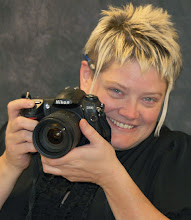



Yadira Castillo holds the pinky-thick bundle of pine needles against the body of the basket she has already finished, wraps deep red thread around it and pulls tight. Wrap, pull tight. Wrap, pull tight.
Seven layers in, she has several hours of work left to finish her latest masterpiece, made of needles shed by the tall pines that grow on the mountain and nylon that Kellan brings from Léon and Managua every few months.
She has lived in Cerro Colorado for eight years and before that, another remote community. There is no public transportation to the top of the peak. When the women of deliver their finished baskets to Kellan in El Sauce, they walk down a path three to four hours or fill a recycled sack and ride down on horseback.
From the main church you can see the area of Cerro Colorado — somewhere in the woods in the highest point of the peak — but most people, even in El Sauce, have never been here.
Castillo and the other women and their families raise beans, corn and other small crops for subsistence and sell some of the extra. Kellan figures they make about $500 in the dry season and make it last through the wet.
Kellan helped arrange the women to be trained in basket making by artisans in Manuel Lopez, as a way to be more independent and earn their own incomes and supplement for their families.
Some women are just learning and the baskets are a little lopsided; others are large as basins with patterns of green, red, yellow and close-fitting tops. The more experienced women are helping to teach the newbies.
The Wizard of Clay in Honeoye, N.Y. buys some of the baskets to sell and Kellan has found another buyer in Texas. A friend of a family member saw them, he said, and loved them so much she wants to stock some.
Yacarely and Kellan have also begun to create marketing brochures for the baskets and identify markets in Managua and Léon. Geneseo senior Chad Salitan spent several weeks last year trekking up to Cerro Colorado to take pictures and devise the initial marketing plan.
"We want to find markets in the United States, where the women can sell the baskets at a higher price," says Kellan.
In the Managua tourist market, we spot a purse made by Yadira and her friends selling for about 300 cordobas — $15. I also see El Sauceno coffee in a fancy bag — another new market Kellan and Yacarely have made.
It's all very small scale; the hope is to expand the markets and the price the women receive for the sales.
It's a good investment. Pine trees grow naturally in Cerro, so it's a renewable and free resource. And, they don't have to harm the tree. They collect the needles that have fallen. The only cost is the thread. Kellan shops around for the best prices in the city and then sells the thread to the artists at cost.
Any money made from the sale of the baskets goes back into the kitty. The hope is to make this a sustainable project so the women see it's profit worthy and that they will decide, in time, to carry on on their own once they've established larger and more lucrative markets.
Maybe alumni who own shops or business students can help with identifying importers or markets, Kellan says.
So far the basket program has offered much hope to the women of Cerro Colorado.
"With the income we're going to have, we're going to be better because we can use that money to buy medicine," says Feliciana. Often, their families don't have any extra money after eating to buy medicine or visit a doctor. Beningna says her husband does not make enough money selling crops from their farm.
"There's a lot of opportunity," says Angela, an older woman who is hosting the meeting outside her home. Kellan and Yacarely are talking about the upcoming Cristo Negro and tourism fair and the baskets they are making to sell at the booth. "We can have material and we can use it, no problem."
It's a real opportunity, says Catalina, for women like her, who have no husband. "The money I get from this is helping me care for my family," she says.
Traditionally, the men are breadwinners and women care for the home and family. Typically, the women don't have money of their own. Yacarely also sees the basket initiative as a way for them to become more independent and have their own source of income. It's vital for women like Catalina.


Hey, thanks a lot for the information post .You have very good blog . I have wondering if you make money from pay per post too? I heard that is not bad for a good page rank blog
ReplyDeleteThose have got to smell fantastic. I'm going to have to get over to Wizard of Clay and check those out!
ReplyDelete